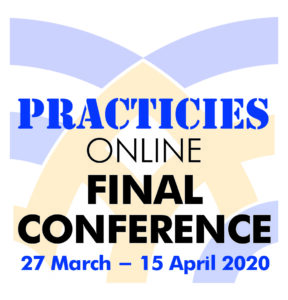 Paris, France, April 2020 – The PRACTICIES project (“Partnership Against Violent Radicalisation in Cities”), led by the University of Toulouse-Jean Jaurès and in which Efus was a partner, held its final conference in April with a series of seven online webinars on the project’s main results and recommendations.
Paris, France, April 2020 – The PRACTICIES project (“Partnership Against Violent Radicalisation in Cities”), led by the University of Toulouse-Jean Jaurès and in which Efus was a partner, held its final conference in April with a series of seven online webinars on the project’s main results and recommendations.
Concluding three years of intensive work (from May 2017 to April 2020), the conference was originally scheduled to take place in March in Riga (LV) at the same time as Efus’ General Assembly meeting, but both events were cancelled because of the lockdown measures imposed throughout Europe in response to the Covid-19 pandemic.
> Three roundtable and four “toolbox” sessions
Instead, the PRACTICIES project and Efus organised a series of three roundtables and four “toolbox” presentations online, which attracted an audience of about 180 people in total.
You can access the articles published on each of these sessions by clicking on the links below.
> The panel sessions
- The first panel session was about young Europeans and radicalism, and included a presentation of a Europe-wide survey on young people’s perception of radicalism and insights from work carried on the ground with families of radicalised individuals and young people from disadvantaged neighbourhoods in France.
- The second panel session was devoted to the work carried out through the project on extremist speech and counter-narratives, with testimonies from the city of Augsburg (DE) and the EU’s Radicalisation Awareness Network (RAN).
- The third panel session concluded the conference with a round up on the project’s key results and political recommendations for European institutions, national governments and local and regional authorities.
> The toolbox sessions
- The first toolbox was about the extremist content analysis tool developed through the project for law enforcement, security and intelligence agencies.
- The second toolbox was about citizens’ agoras as a way to foster citizen participation and empowerment at the local level, which the PRACTICIES consortium has identified as key factors in preventing polarisation and radicalisation.
- The third toolbox was about Digital Me, an initiative implemented in Brussels to enable youngsters from two deprived neighbourhoods affected by phenomena of radicalisation to tell a story about themselves in a short video clip they can share on social media.
- Finally, the fourth toolbox was about the serious game Newscraft developed by the project to teach media literacy to young people in order to strengthen their resilience against extremist discourses, conspiracy theories and fake news.

